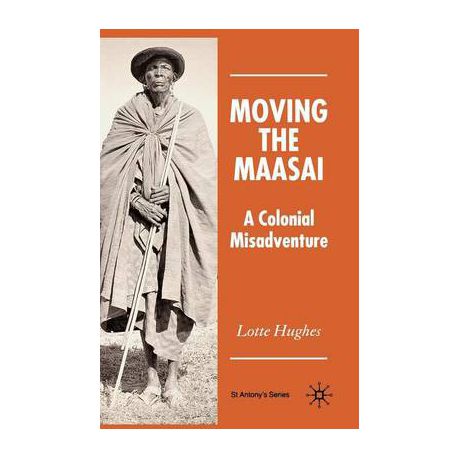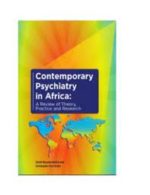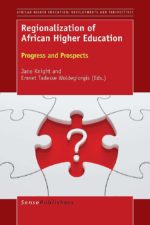This is the scandalous story of how the Maasai people of Kenya lost the best part of their land to the British in the 1900s. Drawing upon unique oral testimony and extensive archival research, Hughes describes the intrigues surrounding two enforced moves and the 1913 lawsuit, while explaining why recent events have brought the story full circle.
Moving the Maasai: A Colonial Misadventure (St Antony’s Series) 1st ed. 2006 Edition
KSh 15,260.00
1 in stock
| SKU: | 9781349545483 |
|---|---|
| Categories: | African Interest, History books |
| Author | L. Hughes |
|---|
Related products
-
Einstein His Life & Universe By: Walter Isaacson
KSh 1,695.00Einstein was a rebel and nonconformist from boyhood days, and these character traits drove both his life and his science. In this narrative, Walter Isaacson explains how his mind worked and the mysteries of the universe that he discovered.
-
Star Dust Falling
KSh 650.00In August 1947 in the highest of the High Andes, one of the earliest long haul passenger aircraft, a Lancaster called Star Dust, disappeared en route to Santiago, Chile. It left behind only questions: was it sabotage; was there a horde of gold on board; and what was the meaning of the radio operator’s mysterious final message before the air waves fell silent? Only with the discovery of the wreckage by two Argentinian climbers in January 2000 could those questions finally begin to be answered. Star Dust Falling is the story of those on board that pioneering aircraft and of the ramshackle airline British South American Airways which sent them to their deaths. Run by an austere Australian war hero newly arrived from bomber command, BSAA’s flying crew consisted entirely of ex-bomber pilots. The fleet of converted Lancaster Bombers operated on a shoestring, regularly flying without sufficient fuel or access to adequate weather forecasts. The result was that it became one of the most dangerous airlines in the western world. Yet it wasn’t until a third of its planes had crashed and dozens of its passengers had died that the Government finally called a halt. In this account, Jay Rayner recreates the events surrounding the loss of Star Dust and her discovery 50 years later, piecing together the lives of the characters involved: the Chilean-Palestinian passenger with a diamond stitched into the lining of his suit; the King’s Messenger with his bag full of diplomatic secrets; the crew of fearless pilots working in unbelievably strenuous conditions; the Argentinian climbers who risked their lives to find the wreck; and the Argentinian military men who declared war on each other in an attempt to claim the credit.
-
Churchill-by Ashley Jackson
KSh 700.00In a much-acclaimed account, Jackson describes the contours and contradictions of a remarkable life and a career he describes as ‘Winston Churchill’s appointment with destiny’.
-
Africa: Crude Continent: The Struggle for Africa’s Oil Prize Paperback
KSh 1,992.00Based on thirty years in the global oil game, intimate knowledge of African history and direct experience of over forty countries, this comprehensive book shows that Africa’s flaws are not the whole story, when it comes to the continent’s history. A definitive yet original account of the rush for Africa’s oil, this is also a guide to the hidden face of Africa. Duncan Clarke begins by placing African oil issues in their historical context before tackling the issues of power, nationalism and different parties’ strategies for control that have led to today’s oil scene. This book is the ultimate reference work on oil in Africa – which is vital to everyone’s future around the world.
-
Contemporary psychiatry in Africa : a review of theory, practice and research
KSh 1,740.00This book harnesses the collective wisdom of African Psychiatry and therefore serves as a departure point for ongoing efforts to refine practice in accordance with the best practice and local needs. There are a number of chapters dedicated to a range of conditions, covering the most prevalent as well as some emerging conditions ranging from HIV related psychopathology to eating disorders. Additionally, the book provides a focus on a related and pertinent Sub-specialist field – that of neuropsychiatry. There is a chapter devoted to child and adolescent psychiatry – a sub-specialist area that is sorely underserviced. The elderly too are not forgotten in this book. Whilst much is spoken of the youth, it is well to consider the ageing members of society. Psychiatry and the law have also been adequately tackled through a chapter on forensic mental health. The book is a ‘must-read’ for academicians, researchers and practitioners in different areas of mental health. Postgraduate students pursuing various aspects of mental health, undergraduate medical students and diploma medical students will find this book quite ideal.
-
Regionalization of African Higher Education -progress and prospects
KSh 6,720.00Regionalization of higher education in Africa is the least researched topic in the field of Social Science. In this regard, this book is a pioneer in terms of exploring both the historical and theoretical dynamics of regionalization processes within Africa. This book raises fundamental questions that focus on context and formation, operationalization and implications, and challenges and prospects of these regionalization processes. In doing so, it gives both the analytical contexts of the evolution of higher education regionalization and the current initiatives by the African Union. Dissertation. (Series: Contributions to African Research / Beitr�¤ge zur Afrikaforschung, Vol. 73) [Subject: African Studies, Higher Education]
-
Sexuality and Gender Politics in Mozambique: Re-Thinking Gender in Africa
KSh 1,499.00Demonstrates shortcomings in Western feminist conceptualizations, and shows how insights from African feminist thinking may enhance understandings of gender, both in and beyond Africa.
Winner of the 2012 gender research award KRAKA-prisen.
This book is about gender politics in Mozambique over three decades from 1975 to 2005. The book is also about different ways of understanding gender and sexuality. Gender policies from Portuguese colonialism, through Frelimo socialism to later neo-liberal economic regimes share certain basic assumptions about men, women and gender relations. But to what extent do such assumptions fit the ways in which rural Mozambican men and women see themselves? A major line of argument in the book is that gender relations should be investigated, not assumed, and that policies not matching people’s lives are not likely to succeed.
The empirical data, on which the argument is based, are first a unique body of data material collected 1982-1984 by the national women’s organization, the OMM [when the author was employed as a sociologist in the organization] andsecondly data resulting from more recent fieldwork in northern Mozambique.
Importantly inspired by African post-colonial feminist lines of thinking, the book engages in a project of re-mapping and re-interpreting ‘culture andtradition’. In this context, the book investigates in particular matriliny [c. 40 per cent of Mozambique’s population live under conditions of matriliny] and female initiation. The findings open new avenues for gender politics, and for rethinking sexuality and gender – in Africa and beyond. -
Sapiens: A Brief History of Humankind
KSh 595.00How did our species succeed in the battle for dominance Why did our foraging ancestors come together to create cities and kingdoms How did we come to believe in gods nations and human rights to trust money books and laws and to be enslaved by bureaucracy timetables and consumerism And what will our world be like in the millennia to come










Be the first to review “Moving the Maasai: A Colonial Misadventure (St Antony’s Series) 1st ed. 2006 Edition”